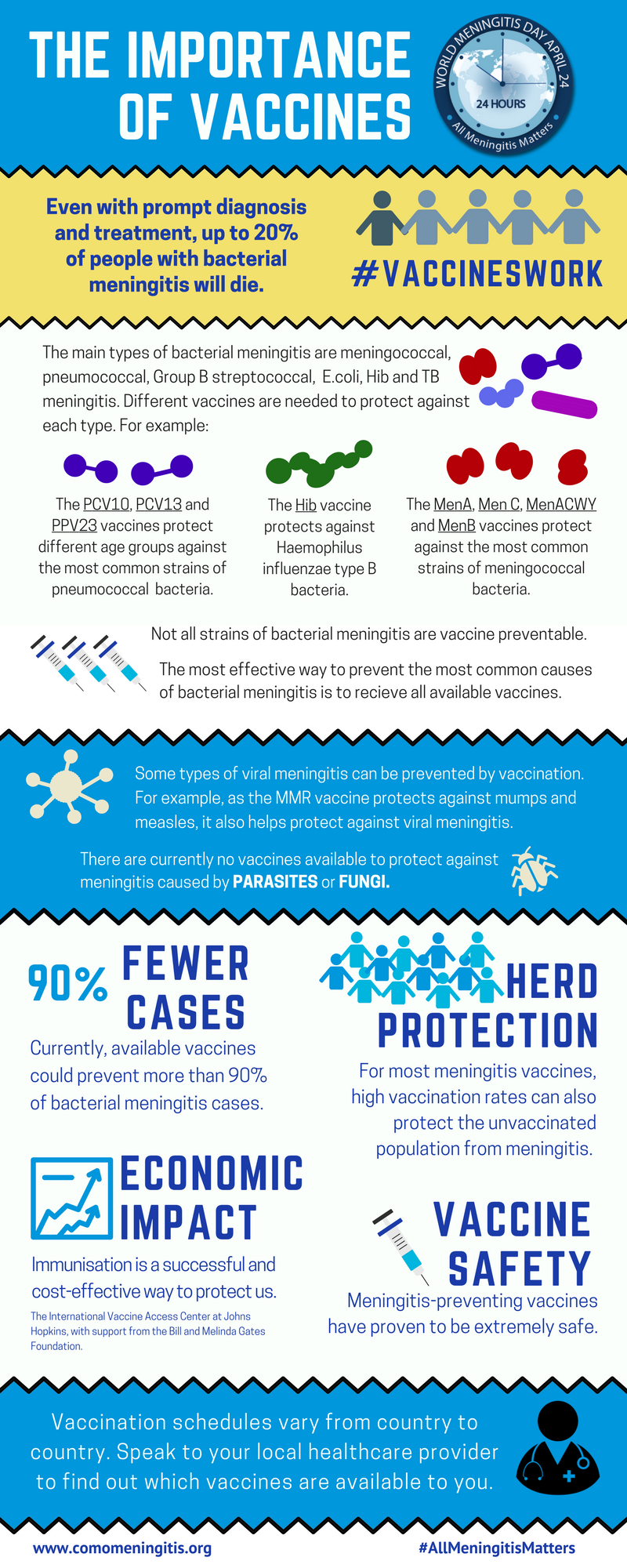24 April marks World Meningitis Day. The theme for 2018 is #AllMeningitisMatters. The campaign, led by the Confederation of Meningitis Organisations (CoMO), will focus on the different causes of meningitis and the vaccines that can help protect against certain strains of bacterial and viral meningitis.
Meningitis is a potentially life-threatening inflammation of the lining of the brain and spinal cord. The most common symptoms are headache, fever, neck stiffness, vomiting and an inability to tolerate bring light and loud noises. Bacterial meningitis can also be accompanied by a characteristic rash.
Read more about meningitis in our Diseases section
 Meningitis affects more than 2.8 million people globally each year. Infants, adolescents, older people, and people with weakened immune systems are among those at higher risk.
Meningitis affects more than 2.8 million people globally each year. Infants, adolescents, older people, and people with weakened immune systems are among those at higher risk.
Bacterial meningitis can be caused by many different types of bacteria. That is why there are a variety of vaccines that are needed to protect against it, such as MenC, MenA, MenACWY, MenB, PCV10, PCV13, PPV23 and Hib.
Currently available vaccines could prevent more than 90% of cases of bacterial meningitis, according to CoMO.
There is no single ‘meningitis vaccine’ – receiving one type of meningitis vaccine will not protect an individual against other strains or types of meningitis. Not all strains of meningitis are vaccine preventable, so it is crucial to watch for symptoms.
Some types of viral meningitis can be prevented by vaccination. For examples, as the MMR vaccine protects against mumps and measles, it also helps protect against viral meningitis.




